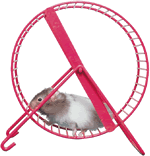At almost this exact time last year, I wrote this in response to a petitioning campaign by MoveOn.org over proposed cuts to government grants to the Corporation for Public Broadcasting.
Don’t get me wrong. I like PBS and NPR is just about all the radio I ever listen to. The issue here isn’t whether they should face a funding crisis or not; I hope that they don’t. Rather, it’s what you should do in the face of that funding crisis. MoveOn just invested an incredible amount of time, money, and energy into mobilizing a bunch of Progressives to whine about it in Congress and beg for the money back. Meanwhile, instead of signing an online petition, calling my Representative, and e-mailing my friends and colleagues to get them to shake the change cup with me, I shut up and put down a pledge of $10 / month to Detroit Public Television.
Now, if 1,091,509 people in MoveOn’s orbit had done what I did, instead of what they did, then by my calculations PBS and NPR would have $130,981,080 more money for programming in the upcoming year. More importantly, they’d have that $131 million no matter what Congress and the Senate decided to do.
You might claim that not everyone who gets MoveOn e-mails will put down a pledge, but a lot more people will put down a zero-cost signature. You might think that MoveOn just can’t command that kind of money. Well, that strikes me as making excuses: we are talking about the group that just threw tens or hundreds of millions of dollars (depending on the as-yet unreleased budget data for their 501(c)(4) branch) down the tubes for electable
John Kerry just last year. But fundraising is tricky, and maybe they wouldn’t make as much as they might hope. But think it about it this way: when you give money directly to people doing good work, the economics of failing to meet your goals are different. Lobbying is, more or less, an all-or-nothing game, with very few chances for gains on the margin. Names on a petition may or may not make a difference; but if they don’t make a difference (and, frankly, it doesn’t look like they made much of one here) then the names and pious hopes that NPR and PBS got out of the campaign aren’t worth the electrons that they’re printed on. But if you don’t hit your targets in direct support, the contributions you did get are money in the bank, no matter what. If only half as many people pledged as signed the petition, well, then PBS and NPR would have $65,490,540 that they didn’t have before. If the average contribution was $30 instead of a $10 / month pledge, they’d would have $32,745,270. Maybe that will save Big Bird and maybe it won’t; but even if it doesn’t it’s a darn sight better and more secure than the nothing that failed petitioning campaigns produce.
There’s a general principles here worth mentioning; it’s a principle the Left used to care about. It’s called direct action, and the longer the Progressive
wing of the Left keeps ignoring it — the longer that they spend throwing time and organizing effort down the tubes to beg the government to support the institutions that they like — the longer we are all going to be losers.
— GT 2005-06-25: Shut up and put up

Above: Mister Buckles is saving public broadcasting!
Hey, guess what showed up in my inbox last week? Quick! Everybody make a massive public outcry!
From: Noah T. Winer, MoveOn.org Civic Action
To: Charles Johnson
Date: 6/8/2006
Subject: Save NPR and PBS (again)
Everyone expected House Republicans to give up efforts to kill NPR and PBS after a massive public outcry stopped them last year. But they’ve just voted to eliminate funding for NPR and PBS–unbelievably, starting with programs like Sesame Street.
Public broadcasting would lose nearly a quarter of its federal funding this year. Even worse, all funding would be eliminated in two years–threatening one of the last remaining sources of watchdog journalism.
Sign the petition telling Congress to save NPR and PBS again this year …
Here’s what Winer was referring to:
Health research, school aid and social services for the poor would bear budget cuts under a bill approved by a House panel Wednesday. … The House Appropriations Labor-HHS Subcommittee approved the bill by a 9-7 party-line vote Wednesday …. The panel’s action also rekindles a battle fought last year over the Corporation for Public Broadcasting. The bill would cut by 5 percent previously appropriated funds for the budget year beginning Oct. 1 and eliminate subsidies for educational programs and technological upgrades. The bill also fails to provide future-year funding for public television as is the typical practice.
— Andrew Taylor, The Guardian (2006-06-16): House Panel Cuts Health Research Budget
Four days later, Winer was ecstatic to report:
From: Noah T. Winer, MoveOn.org Civic Action
To: Charles Johnson
Date: 6/12/2006
Subject: Save NPR and PBS (again)
Dear Charles,
I just wanted to share some very cool news with you.
Over the last couple of days, over 300,000 people (including 80,000 who are totally new to MoveOn) have signed on to our petition to save NPR and PBS. That brings the total number of signers to over 1,400,000–making this not only our largest petition ever, but one of the largest petitions anyone’s done.
But the next vote in Congress will be as soon as tomorrow. To stop Congress’ budget cuts, we need to go even bigger: we’re aiming for 1.5 million of us to sign on by tomorrow. Can you join us by adding your name to the petition to protect NPR and PBS? It just takes a minute, but it’ll make a real impact.
The real impact
that this made was to send over 1,400,000 copies of the following note to members of Congress:
TO: Your senators and representative
FROM: (Your Name and Email)
SUBJECT: Save NPR and PBS
Dear senators and representative,
(Your personal note)
Congress must save NPR, PBS, and local public stations. We trust them for in-depth news and educational children’s programming. It’s money well spent.
This strong show of public outrage produced the following real impact on June 13:
WASHINGTON — The House Appropriations Committee voted Tuesday to restore $20 million of proposed cuts in federal funding for the Corporation for Public Broadcasting, which provides money to local public television and radio stations.
The Bush administration originally proposed to cut about 37% of the federal funding for public broadcasting, and a subcommittee last week proposed a cut of $115 million, or 23%.
A net cut of $95 million, if passed by the House and the Senate, would go into effect Oct. 1. It would result in the elimination of some educational programming, including Ready to Learn,
a literacy program, and Ready to Teach,
an online resource for teachers, according to a National Public Radio spokesman.
—Los Angeles Times (2006-06-14): Smaller Bite Sought Out of Corporation for Public Broadcasting
WASHINGTON (Hollywood Reporter) – The House Appropriations Committee voted on Tuesday to slash funding for the Corporation for Public Broadcasting and refused to fund the service for 2009.
— Brooks Boliek, Reuters (2006-06-14): House panel votes to slash public broadcast funds
Meanwhile, I shut the fuck up and made an annual contribution to my local PBS station at the $40 membership level. If those 1.4 million people in the MoveOn orbit had done what I did, instead of what they did, public broadcasters would now have over $56,000,000 to put in the bank, no matter what Congressional Republicans say or do or think about it. The time, energy, and money wasted on throwing 1.4 million nearly identical notes about money well spent
managed to salvage a bit more than a third of that in reductions to the budget cuts, and it leaves PBS and NPR at the mercy of next year’s round of government budgeting. (Oh, but don’t you worry–when that happens I’m sure that MoveOn will mount another massive public outcry to save PBS and NPR again, again.)
We can do this ourselves, so quit begging. Shut up and put up.

